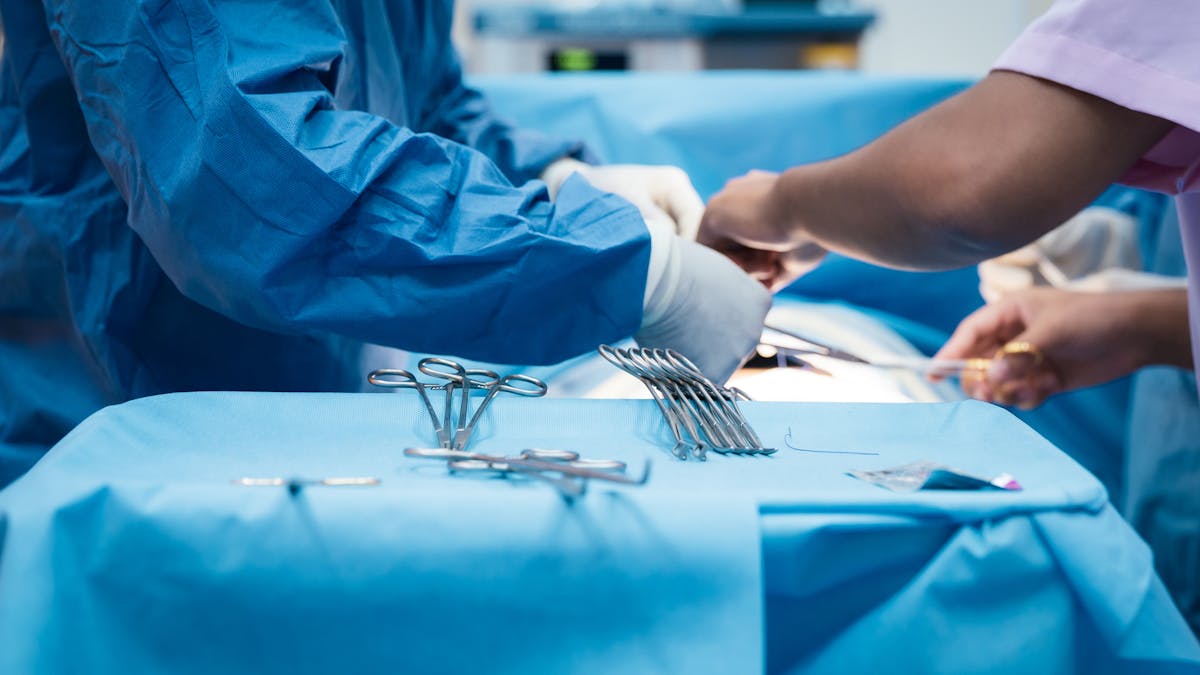


Health and Human Services (HHS) Secretary Robert F. Kennedy Jr. is demanding reform to the organ transplant system after a shocking investigation found organs were nearly harvested from dozens of patients who showed signs of life.
An investigation conducted by HHS’s Health Resources and Services Administration reviewed 351 cases out of Kentucky where organ donation was approved, but not completed. More than 100 of those cases – about 30% – showed what HHS called “concerning features,” including 73 patients who showed neurological signs “incompatible with organ donation.” At least 28 patients may not have been dead at the time the organ procurement was started.
Some of these patients died within hours, but others lived for multiple days, and some became well enough to actually leave the hospital.
Outside of the HHS investigation, a recent report from The New York Times highlighted a number of disturbing cases where the push for organs threatened potential donors. In one case, a 42-year-old Alabama woman had her chest cut into and her breastbone sawed before the doctors realized her heart was still beating and she was breathing.
“Our findings show that hospitals allowed the organ procurement process to begin when patients showed signs of life, and this is horrifying,” Kennedy said in a statement, and his department said it found a “systemic disregard for the sanctity of life.”
The secretary singled out organ procurement organizations (OPOs), nonprofits that coordinate access to these transplants, and said they will be “held accountable.”
“The entire system must be fixed to ensure that every potential donor’s life is treated with the sanctity it deserves,” RFK added.
Our findings show that hospitals allowed the organ procurement process to begin when patients showed signs of life, and this is horrifying. The organ procurement organizations that coordinate access to transplants will be held accountable. The entire system must be fixed to… https://t.co/DeiFa2FlEJ
— Secretary Kennedy (@SecKennedy) July 22, 2025
The federal inquiry into the organ transplant system was sparked by a Kentucky man who overdosed in 2021. The OPO involved, which is now called Network for Hope after a merger, was at the center of the investigation.
The Times, which had access to HHS’s findings, said hospital staffers were uncomfortable moving forward with the organ procurement, fearing they were committing euthanasia. However, an OPO coordinator assured the staffers that everything was fine. Eventually, a doctor said he wouldn’t move forward, and the Kentucky man “cried, pulled his knees to his chest and shook his head.”
The patient became well enough to leave the hospital and is still alive today.
Two former employees of the OPO told the Times the organ harvesting would have “1000% moved forward” if not for the doctor putting a stop to the OPO. Three other former employees said they witnessed similar cases.
Barry Massa, the CEO of Network of Hope, testified before Congress on Wednesday and stated that the nonprofit is conducting its own internal investigations and has implemented new standards to protect organ donors.
“We have devised a checklist for every nurse that is on a DCD (donation after circulatory death) case,” Massa said. “We did the same thing with every attending physician.”
“We’ve implemented ‘hard stops,’ so that during any part of the process, we have huddles with everyone involved in the care and the treatment of that DCD donor so that if any concerns are raised, they can raise those concerns at that time, or any time in the process,” he added.
HHS has outlined several procedures for OPOs to follow and requires them to adopt a formal method that allows any staff member to halt a donation process if patient safety concerns arise.
Kennedy has also threatened to decertify OPOs if they fail to comply with corrective actions outlined by HHS.
Related: WALSH: The Dark Truth About Becoming An Organ Donor
